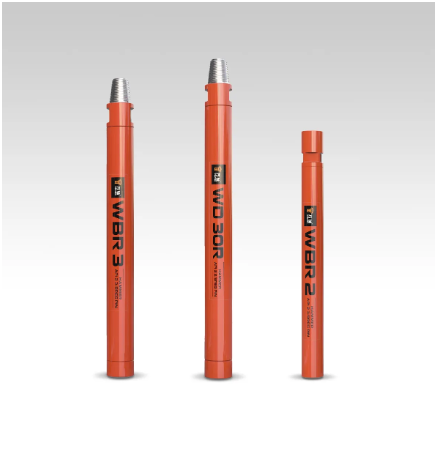Understanding DTH Hammer Components and Their Maintenance Needs
Critical Components Requiring Regular Attention
DTH hammers require regular maintenance of essential components like the impact piston, drill bit, and flushing system to ensure efficient operation. Neglecting these components can lead to increased operational costs and decreased performance of the drilling apparatus. For instance, worn-out drill bits often result in inefficient energy transfer, reducing drilling speed and increasing fuel consumption...
Impact Pistons: The Heart of DTH Hammer Functionality
Impact pistons play a pivotal role in energy transfer, directly influencing the efficiency of the DTH hammer. These pistons convert the potential energy of compressed air into kinetic energy, driving the drill bit into the ground. Poor maintenance of these pistons often results in higher failure rates, compromising the drilling operation...
Drill Bit Interfaces: Ensuring Optimal Energy Transfer
The drill bit interface is crucial for effective energy absorption and transfer during drilling operations. Properly maintained interfaces can significantly enhance the hammer's performance by ensuring seamless energy flow from the piston to the drill bit...
Essential Daily Inspection Routines for DTH Hammers
Visual Checks for Cracks and Wear Patterns
Daily inspections of DTH hammers are vital for maintaining safety and performance. Key areas to inspect include hoses, housings, and connections, as these components are crucial for the integrity of the hammer's operation...
Air Pressure System Verification
Maintaining correct air pressure levels is crucial for the optimal performance of DTH hammers. Ensuring consistent air delivery helps prevent malfunctions and enhances efficiency...
Flushing Hole Clearance Tests
Flushing hole clearance tests play a critical role in preserving the functionality of your DTH hammer. These tests ensure that debris is effectively cleared from the drill hole, maintaining optimal hammer performance...
Proper Cleaning Procedures to Prevent Premature Failure
Post-Operation Debris Removal Techniques
Immediate and effective cleaning routines post-operation are vital to avoiding debris buildup in DTH hammers...
Compressed Air vs. Chemical Cleaning Methods
When it comes to cleaning DTH hammers, both compressed air and chemical solutions have their advantages and limitations...
Button Retention Groove Maintenance
Maintaining button retention grooves is critical to avoiding premature DTH hammer wear...
Lubrication Strategies for Extended Service Life
Choosing the Right Hammer Grease
Selecting the proper grease for DTH hammers is crucial for optimal performance and longevity...
Frequency Guidelines for Different Drilling Conditions
Establishing a lubrication schedule tailored to specific drilling conditions is essential for preventing premature hammer failure...
Lubrication Port Inspection and Maintenance
Regular inspection of lubrication ports is vital to maintain the DTH hammer’s performance...
Troubleshooting Common DTH Hammer Performance Issues
Identifying and Resolving Air Leakage Problems
Air leakage in DTH hammers can significantly disrupt drilling operations, leading to efficiency losses...
Addressing Reduced Penetration Rates
Reduced penetration rates in DTH drilling can stem from various issues, such as blunt drill bits, inadequate air pressure, or debris in the drill path...
Solutions for Stuck Piston Mechanisms
Stuck pistons within DTH hammers can halt drilling progress and require immediate attention...
Frequently Asked Questions
What components require regular attention in DTH hammers?
The impact piston, drill bit, and flushing system are critical components needing regular maintenance for efficient operation.
Why is the impact piston considered the heart of DTH hammer functionality?
The impact piston converts compressed air's potential energy into kinetic energy, driving the drill bit.
How often should DTH hammers be lubricated?
Lubrication frequency should be tailored to drilling conditions, such as rock hardness and environmental factors.
What causes air leakage in DTH hammers?
Common causes include loose connections, worn seals, and cracked components.
Table of Contents
- Understanding DTH Hammer Components and Their Maintenance Needs
- Essential Daily Inspection Routines for DTH Hammers
- Proper Cleaning Procedures to Prevent Premature Failure
- Lubrication Strategies for Extended Service Life
- Troubleshooting Common DTH Hammer Performance Issues
- Frequently Asked Questions

